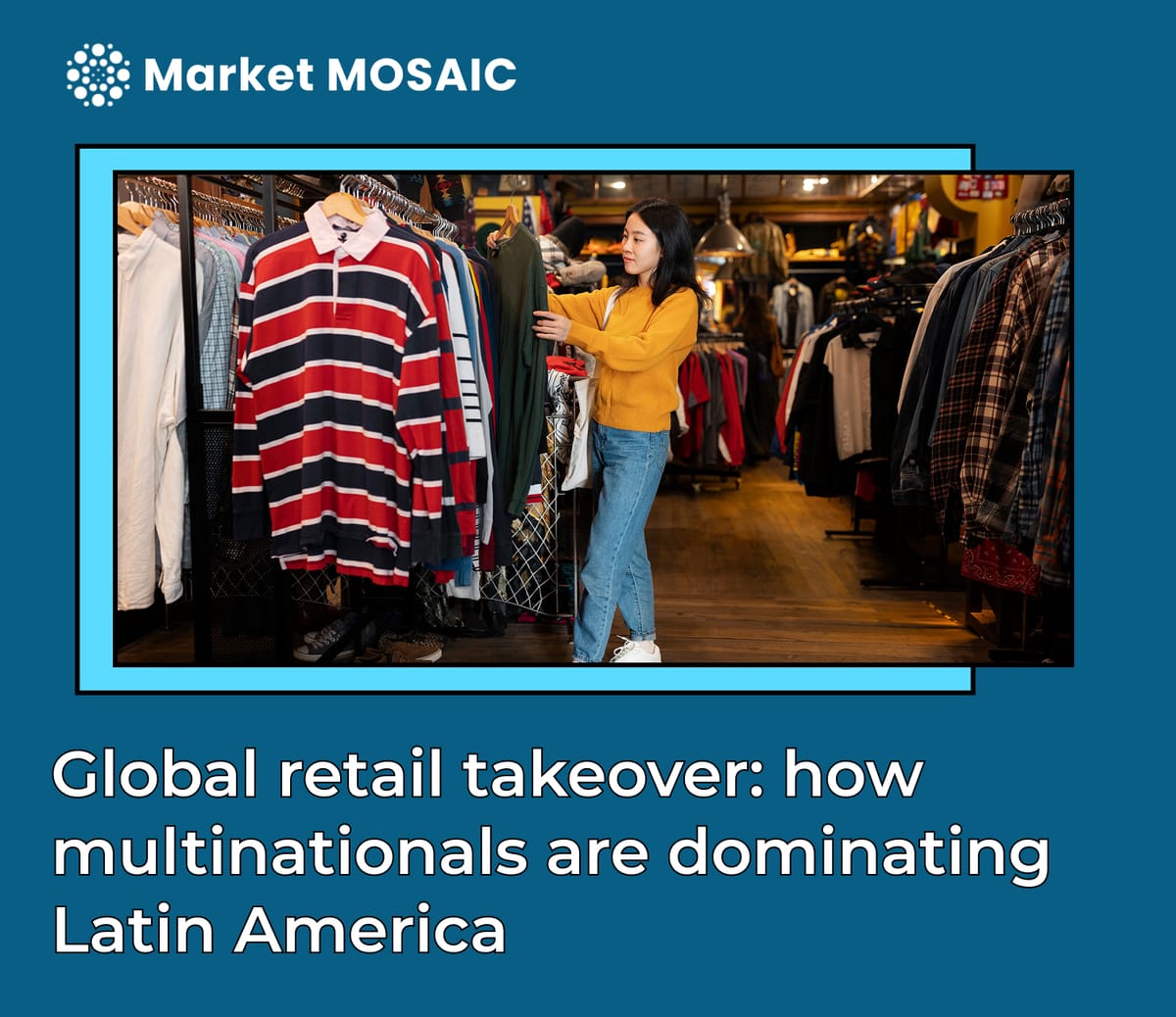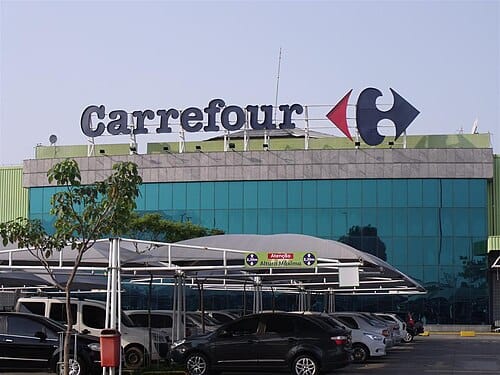Global retail takeover: how multinationals are dominating Latin America

Foreign supply chains are transforming Latin American retail
In the world of commerce, a supply chain is the network of suppliers, manufacturers, distributors, and retailers that moves a product from raw materials to the hands of the consumer. When a foreign company operates a supply chain in another country, it brings its own systems, logistics, and strategies, often reshaping the local economy in the process.
The retail sector, which includes supermarkets, convenience stores, e-commerce platforms, and department stores, has become a strategic battleground where international firms leverage these supply chains to dominate local markets.
Carrefour and the Brazilian market
Brazil provides a striking example of this phenomenon. Carrefour Brasil, a French multinational, is the country’s largest private employer, with over 150,000 staff, including its wholesale network Atacadão. This is not merely a story of market penetration; it is a demonstration of how foreign supply chains create substantial economic impact, from employment to distribution networks, in ways domestic companies sometimes cannot replicate.

Carrefour’s success shows how international retail models, when executed efficiently, can embed themselves deeply into local economies and influence labor markets at a scale few domestic firms achieve.
FEMSA and Mexico’s retail expansion
The trend extends northward. Mexico’s largest private employer is FEMSA, the world’s largest Coca-Cola bottler. Employing 350,000 people and generating more than $40 billion in annual sales, FEMSA operates at a breathtaking pace. Its retail arm, OXXO, opens more than four new convenience stores every day across Mexico, Colombia, and Peru. Each store is a node in a vast, highly coordinated supply network that locks in consumer habits, strengthens market dominance, and showcases how international and multinational-linked supply chains can shape the very structure of retail in emerging markets.
Global examples of foreign supply chains in retail
Latin America is not unique in seeing foreign supply chains dominate local retail. Walmart in India, through its majority stake in Flipkart, brings American supply-chain practices to Indian e-commerce, creating efficiency and scale advantages.
IKEA in China controls sourcing, logistics, and retail stores, giving the Swedish giant an operational edge.
In Southeast Asia, Tesco in Thailand and Malaysia expanded British retail methods before eventually selling operations to local partners.
Similarly, 7-Eleven, originally American, runs highly optimized convenience networks across Japan and Asia through Japanese ownership.

Carrefour in Africa, including Morocco, Kenya, and Egypt, demonstrates how European retailers transplant operational expertise to emerging markets. These examples highlight that managing foreign supply chains is not only about moving products, it is a strategic lever for market dominance, employment influence, and operational efficiency.
Financial performance and operational efficiency
The impact of these supply chains is also visible in financial performance. Walmex (Walmart Mexico & Central America) achieves 10.9% ROA and 23.1% ROE, alongside nearly $52 billion in sales, signaling operational efficiency and profitable growth. In contrast, some domestic players struggle to compete. Brazil’s GPA reports -12.2% ROA and -81.9% ROE, indicating that the company is losing money on its assets and eroding shareholder value. This comparison underscores the competitive advantage that foreign-backed or multinational-linked operations often enjoy, including better cost control, inventory management, and scalability.
Insights for business leaders
For business leaders, controlling supply chains is a form of strategic power, enabling firms to dominate markets quickly while securing consumer loyalty. Scale and speed are decisive, as FEMSA’s OXXO expansion illustrates. Operational efficiency, measured in ROA and ROE, is more than a financial metric, it reflects a firm’s ability to execute strategy and defend market position.
Domestic firms must adapt, innovate, or partner strategically to survive in environments increasingly shAaped by foreign influence. Beyond profits, foreign supply chains carry broader economic weight, influencing employment, local supplier networks, and even national economic resilience.
In essence, Latin America’s retail sector is no longer just about selling products. It is about network control, speed, efficiency, and strategic influence. Understanding this landscape is essential for leaders who want to navigate the region’s consumer markets successfully and turn competitive pressure into strategic opportunity.





